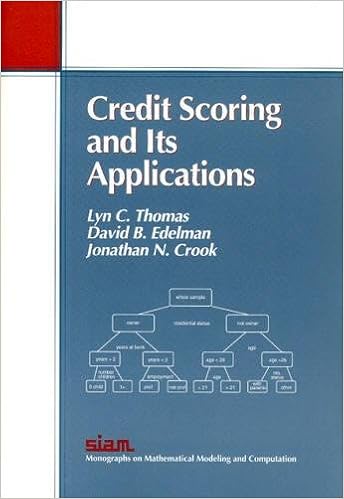
Credit Scoring For Risk Managers Elizabeth Mays Pdf Converter
Moreover, by incorporating model metadata management within. Implemented and updated at different points in time, for example, response models, conversion models. And measured score shifts are a result of shifts in those independent. Elizabeth Mays, “Credit Risk Modeling: Design and Application,” Thomson,. Mays, Elizabeth Credit Scoring For Risk Managers. Credit Scoring For Risk Managers: The Handbook For Lenders By Elizabeth Mays By Elizabeth Mays If you are searched for the ebook Credit Scoring for Risk Managers: The. Credit Scoring for Risk Managers by Dr Elizabeth. About Dr Elizabeth Mays. Mays and Lynas are credit scoring experts with a combined 30 years of experience.
For TVCenter Pro downloads, please check the Click on the Yes or Beta to download the ZIP file. Pinnacle pctv media center.
Author by: Elizabeth Mays Languange: en Publisher by: CreateSpace Format Available: PDF, ePub, Mobi Total Read: 63 Total Download: 294 File Size: 44,8 Mb Description: This is the second edition of Credit Scoring For Risk Managers: The Handbook for Lenders. Like the first edition, it was written for bankers and other consumer lenders who need a clear understanding of how to use credit scoring effectively throughout the loan life cycle.
In today's financial system, scoring is used by virtually all lenders for all types of consumer lending assets, making it vitally important that risk managers understand how to manage and monitor scores and how to set policies for their use. This edition is substantially different from the first edition published in 2004.
Mutual inductance calculation. The world's economies have been through a major financial crisis and severe recession and some have questioned the role and value of models and scores used by lenders in the years leading up to the U.S. Housing collapse and economic downturn. We have devoted a significant portion of the book to topics relevant to ensuring scorecards are properly managed through volatile environments and controlling the risk of using credit scores for decision-making.
Ten of the book's sixteen chapters are new. Many focus on scorecard management practices and on controlling model risk. Score management refers to all the activities model managers and users engage in after the scorecard is developed.
These include setting proper lending policies to use in conjunction with the score, periodic back-testing and validation, and remediation of any issues that may arise related to scorecard performance. Chapter 4 takes the reader step by step through a scorecard development project and discusses best practices for managing and documenting scorecard projects to increase the transparency of the performance, assumptions and limitations of scoring models. The last three chapters are devoted to the important topic of score model governance. Chapter 14 describes how to design a model governance framework to ensure credit scoring models are properly developed, used and validated on an on-going basis. Chapter 15 is focused on model monitoring and back-testing and describes a set of reports lenders should create and review to ensure their scorecards are performing well.
Independent review of risk models by a third-party model expert is an important part of sound model governance. In Chapter 16 we describe how to carry out a thorough independent model review.
Other chapters focus on new material not covered in the previous edition including types of data that are used as predictive information in scores (Chapter 3), fair lending analysis of scorecards and the creation of adverse action reasons (Chapter 11), the use of scores as components of other models (Chapter 10), common scoring mistakes to avoid (Chapter 12) and the important topic of reject inference (Chapter 9). Author by: Elizabeth Mays Languange: en Publisher by: Global Professional Publishi Format Available: PDF, ePub, Mobi Total Read: 21 Total Download: 389 File Size: 42,7 Mb Description: Credit scoring is a vital and sometimes misunderstood tool in financial services Evaluates the different systems available Bankers and lenders depend on credit scoring to determine the best credit risks--and ensure maximum profit and security from their loan portfolios. Handbook of Credit Scoring offers the insights of a select group of experts on credit scoring systems. Topics include: Scoring Applications, Generic and Customized Scoring Models, Using consumer credit information, Scorecard modelling with continuous vs. Classed variables, Basic scorecard Development and Validation, Going beyond Credit Score, Data mining, Scorecard collection strategies, project management for Credit Scoring.